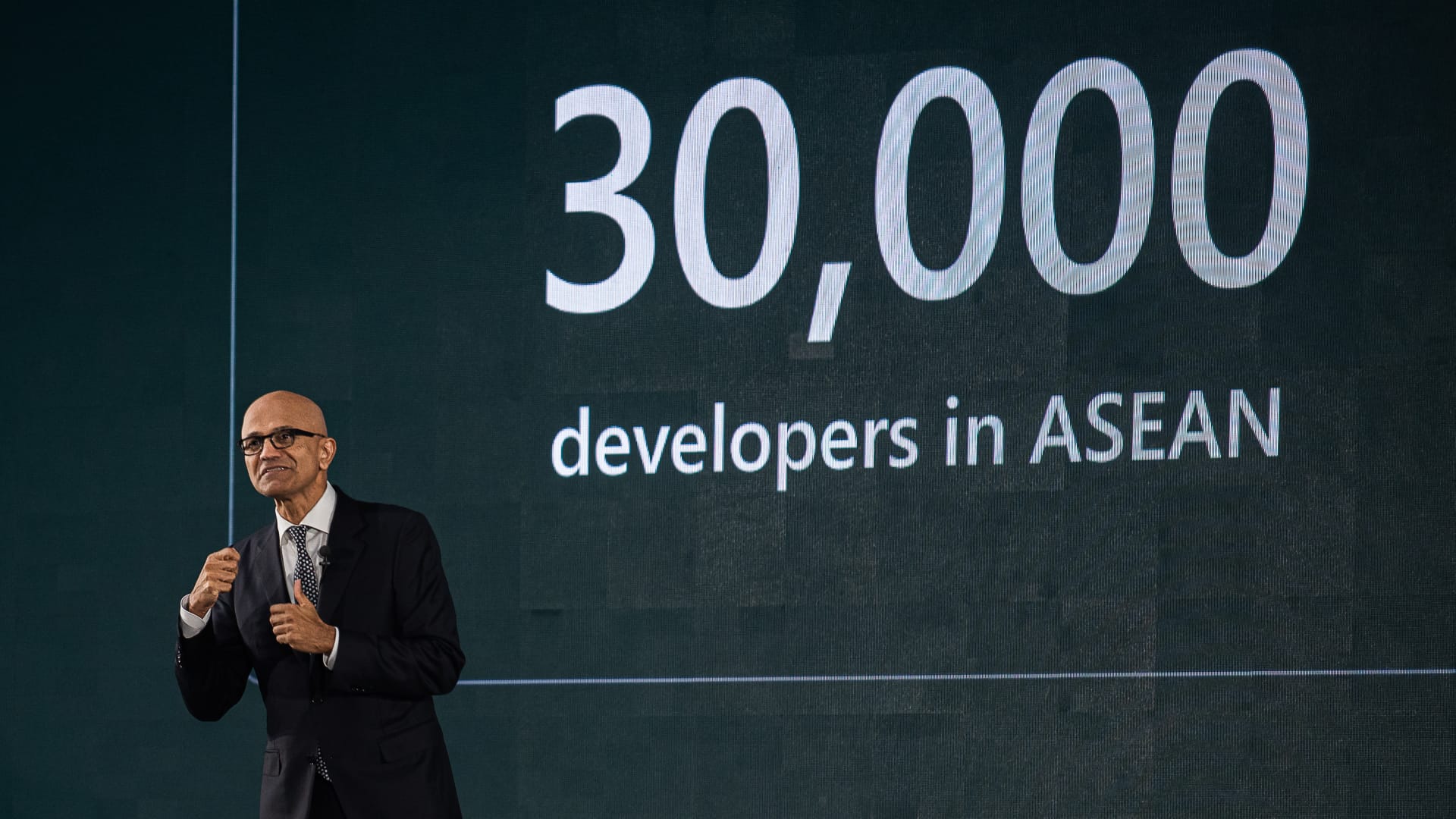
Microsoft, the leading technology company, has announced significant investments in Southeast Asia as part of its expansion into the region. The latest investment includes a $2.2 billion commitment to Malaysia for artificial intelligence (AI) and cloud infrastructure development.
The announcement was made by Microsoft CEO Satya Nadella during his visit to Kuala Lumpur on May 2, 2024, marking the final stop of his three-nation tour in Southeast Asia. The investment is expected to create opportunities for digital transformation and inclusive economic growth in Malaysia.
Microsoft's investments come as the region's position as a tech investment destination continues to gain recognition from world-renowned names. The well-established semiconductor ecosystem in Malaysia has been a significant factor attracting such investments.
The funds will be used to construct infrastructure for Microsoft's cloud computing and AI services, provide education and training for 200,000 people in Malaysia, and work with the government to enhance cybersecurity capabilities. The investment is expected to significantly elevate Malaysia's digital capacity and position it further in the global tech landscape.
Microsoft has also announced plans to establish an AI Centre of Excellence in Malaysia as part of its commitment to supporting the country's AI transformation. The centre will provide opportunities for Malaysian businesses, communities, and developers to apply the latest technology and drive economic growth and innovation across the country.
The investment follows Microsoft's earlier announcements of multibillion-dollar investments in Indonesia and Thailand. Global consulting firm Kearney estimates that AI could contribute nearly $1 trillion to Southeast Asia's GDP by 2030, highlighting the potential impact of such investments.
Microsoft is not alone in recognizing the opportunities presented by Southeast Asia. Other tech giants, including Google and Amazon, have also announced significant investments in the region as they seek to expand their presence and tap into its growing digital economy.

